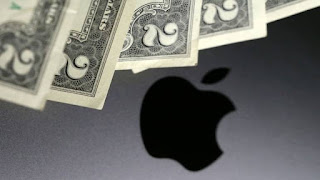Gold prices have touched a six-month high on account of changing structural dynamics
Just when everyone thought that investment in gold is unlikely to give positive returns the yellow metal has surprised by rising to a six-month high. Gold is trading near a key technical level of $1,300 per ounce in the international market.
Traditionally considered a safe haven, gold was ignored for most of 2018 despite a number of negative events affecting global markets. They key factor was a strong US dollar.
In 2018, the strength of the US dollar came from rising interest rates in the US. The year saw aggressive monetary tightening by the Federal Reserve. It was the first time that the Fed raised rates on four separate occasions during a calendar year. The hikes were in addition to liquidity tightening to the tune of $50 billion every month.
But by the end of 2018, it was clear that the interest rate hikes by the Federal Reserve were tapering off mainly on account of growth concerns. Fresh data accentuate these concerns. For instance, US treasury yields accelerated their decline on Thursday after a weaker-than-expected manufacturing index number from The Institute for Supply Management (ISM) for December. The index fell to 54.1 percent for December as against an expectation of 57 percent, and much lower than the 59.3 percent in November. A weakness in the index indicates a slowing economy.
On Thursday, the 10-year treasury yield plunged 10.2 basis points to 2.557 percent, its lowest since January 16, 2018, to mark its biggest one-day decline since May.
Goldmoney, a world leader in precious money investment services in its December 2018 Gold outlook said, “The world is awash with dollars at a time when markets act as if there is a shortage. When the truth emerges, the dollar has the potential to fall substantially against other currencies, leading to a rise in the price of gold.”
Further, the ongoing trade war between the US and China has now reached the US shores. Earlier China was taking the blows on account of the restrictions imposed by the US but now Chinese consumers have hit back. A surprising warning from Apple about slowing sales, especially in China, has delivered the message home to US President Donald Trump about slowing growth.
Building a case for gold investment, Goldmoney’s head of research Alasdair Macleod said that the great dollar unwind is now the overhang on markets. The move towards gold and against the dollar in Asia accelerated in end-2018, with Russia having replaced the dollar with gold as its principal reserve currency. Further, China has laid the foundation with an oil-yuan futures contract, which can be a bridge to yuan-gold contracts in both Hong Kong and Dubai. This is a direct challenge to the dollar as a reserve currency, Macleod noted.
Finally, gold prices are also reacting to the increased demand for the precious metal from various quarters. 2019 is expected to see a balancing of gold supply and demand. Central banks are accumulating bullion; they added 425 tonnes in the year to September 2018.
Moreover, the Chinese private sector continues to hoard gold as seen in the withdrawals from the Shanghai Gold Exchange. India’s total gold imports are not showing any signs of slowing and were at 919 tonnes in the year to September, according to the World Gold Council. These three sources of demand alone add up to 3,344 tonnes annually, which is the same as global mine supply. If you add supply restriction like those imposed by China on exporting gold, then there is a solid bull case for gold as an investment vehicle in 2019.
Source: https://www. moneycontrol.com/news/business/markets/quick-take-a-bull-case-for-investing-in-gold-3354481.html
If you want more information regarding the Market News & many other tips like Intraday Tips , MCX Normal Calls, Bullion Market Tips , Share Market Services , NSE & BSE Market Tips , Free MCX Market Tips , MCX Premium Tips , Bullion Energy Tips , commodity market tips.
Whatsapp User Join Our Group: 9300421111








